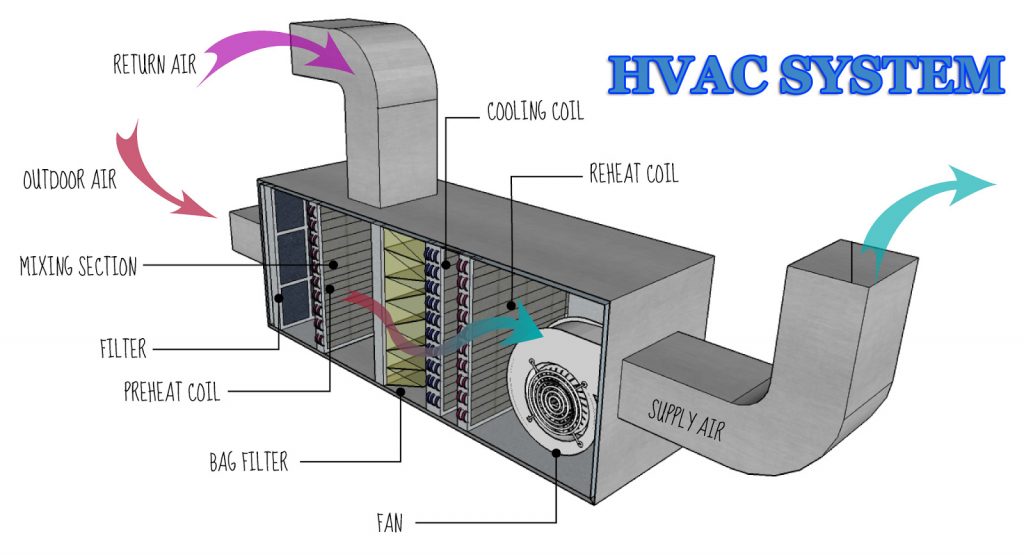
HVAC: Understanding Heating, Ventilation, and Air Conditioning Systems
HVAC systems are essential for maintaining comfortable indoor temperatures and air quality in both residential and commercial buildings. HVAC stands for heating, ventilation, and air conditioning, and refers to the systems used to control the temperature and air quality within a building.
In this article, we will explore the different components of systems and the factors to consider when selecting and maintaining systems.
Components of HVAC Systems
Heating: The heating component of systems is responsible for generating and distributing heat within a building. This can be accomplished through various methods, such as a furnace or a heat pump.
Ventilation: The ventilation component of systems is responsible for circulating air throughout a building. This includes both the intake of fresh air and the removal of stale air, which can impact air quality and the health of building occupants.
Air Conditioning: The air conditioning component of systems is responsible for regulating the temperature and humidity within a building. This can be accomplished through various methods, such as a central air conditioner or a ductless mini-split system.

Factors to Consider when Selecting HVAC Systems
Building Size: The size of the building will impact the type and size of HVAC system required. Larger buildings may require multiple systems or a centralized system, while smaller buildings may be able to be adequately served by a single system.
Building Use: The use of the building will also impact the type of HVAC system required. For example, a commercial building may require more robust systems due to the increased occupancy and use of the building.
Energy Efficiency: Energy efficiency is an important factor to consider when selecting HVAC systems. Energy-efficient systems can help reduce energy costs and environmental impact.
Maintenance Requirements: The maintenance requirements of the system should also be considered. Regular maintenance is necessary to ensure the longevity and optimal performance of the system.
Maintaining HVAC Systems
Proper maintenance is essential for ensuring the longevity and optimal performance of HVAC systems. Regular maintenance can help prevent breakdowns and costly repairs, and can also improve the energy efficiency and air quality of the system.
Some key maintenance tasks for HVAC systems include:
Regular filter replacement: Air filters should be replaced regularly to ensure optimal air quality and system performance.
Cleaning of ductwork: Ductwork should be cleaned regularly to prevent the buildup of dust and debris, which can impact air quality and system performance.
Inspection of components: Components such as the blower motor, compressor, and refrigerant levels should be inspected regularly to ensure proper functioning and prevent breakdowns.
Regular tune-ups: Regular tune-ups can help identify and address potential issues before they become larger problems.
HVAC systems are essential for maintaining comfortable indoor temperatures and air quality in both residential and commercial buildings. By selecting and maintaining HVAC systems that are appropriately sized, energy-efficient, and properly maintained, building owners and occupants can enjoy optimal comfort and air quality while minimizing environmental impact and energy costs.
When selecting HVAC systems, it is important to consider factors such as building size, building use, energy efficiency, and maintenance requirements. Regular maintenance tasks such as filter replacement, duct cleaning, component inspection, and tune-ups are essential for ensuring optimal system performance and longevity.
By prioritizing the selection and maintenance of HVAC systems, building owners and occupants can enjoy optimal comfort and air quality in their indoor environments.
